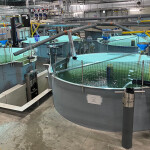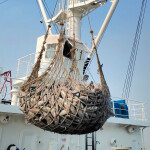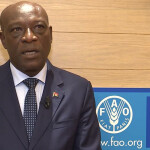Sustainability has become one of the most ubiquitous words in the seafood lexicon, and whatever one’s view on it, the concept has become a fixed reference point for the seafood industry — at least in the short term.
This means that seafood buyers need to identify well-performing and environmentally sound fisheries, and find it hard to justify sourcing supplies from parts of the world where data collection and management is poor, and fishing practices questionable.
However, Fisheries Improvement Projects (FIPs) are changing the way that ethical seafood buyers engage with problematic fisheries and enable them to consider red list stocks. They recognize that unlike some NGO traffic light schemes, it is often not practical or possible to switch a fishery on and off because of the local socioeconomic impact. Instead, they seek to make the fishery sustainable through continuous improvement, by working with everyone involved in it — particularly the fishermen.
The concept of FIPs was first introduced by the Sustainable Fisheries Partnership (SFP), which takes an active role in initiating and coordinating fisheries improvements, with the aim that industry will eventually take over the leadership role. Their success has now led to industry bodies initiating their own projects.
FIPs work by bringing together a collaborative alliance of seafood buyers, suppliers and producers to lobby for improvements in policy and management at government level, and for changes to working practices at the fishery level, to minimize poor practices such as illegal fishing, bycatch and environmental impacts.
Measures needed to ensure eventual sustainability are set out in an agreed work plan, and progress is monitored to ensure it stays on track.
“The process is simple but effective,” explained SFP CEO Jim Canon. “Companies committed to responsible sourcing become powerful allies in leveraging fisheries improvement when they work together.
The long-term aim for a fishery involved in a FIP is to gain green status, and for many, to achieve certification to an independent sustainable standard such as the Marine Stewardship Council’s.
Seafood buyers provide the incentive for fisheries to make the necessary changes by offering market access while improvements are being made, provided that agreed targets are met. For supply chain partners, engaging in a FIP enables them to have a direct effect on positive change in both a fishery and fishing communities, and provides evidence that improvements are taking place.
Major players have become involved in supporting projects as a means of widening their seafood offering and ensuring its sustainability. For example, Walmart is working with SFP to identify high-risk fisheries and to initiate FIPs, in line with its sourcing policy that requires all wild seafood supplies to become third-party certified to MSC standard or equivalent, and uncertified fisheries to be actively working toward certification through FIPs.
Major crab buyer Philipp’s requested SFP’s advice and involvement to improve the sustainability of poorly performing crab stocks, and together with other major crab processors and exporters, formed the Indonesia Blue Swimming Crab Producers Association and the Philippine Association of Crab Processors Inc to address the issues and engage in FIPs.
Their work, which is largely funded by the National Fisheries Institute’s (NFI) Crab Council through a levy on members’ imports, has been successful in both countries in seeing legislation introduced to help regulate, manage and monitor the fisheries.
Another FIP showing results is Sri Lanka tuna, supported amongst others by Sainsbury’s and U.K. importer New England Seafood, which has taken time to get going, but has now gained full support from the government and recently received public acknowledgement.
“The Government of Sri Lanka wishes to acknowledge the efforts of the Sri Lanka tuna Fisheries Improvement Project and support the objectives and activities of this project. The stakeholders in this project have cooperated with good effect in practical efforts to achieve fishery improvement and we will continue to support them in the future,” said Fisheries Minister, Dr. Rajitha Senaratne.
Around 50 fisheries have so far been improved through a FIP or are in the process of working towards their goal and many more are under consideration. It is not a universal panacea, and to succeed, the process requires understanding and commitment from everyone involved. However, measurable results are being achieved and are helping consumers to enjoy guilt-free seafood dinners.






